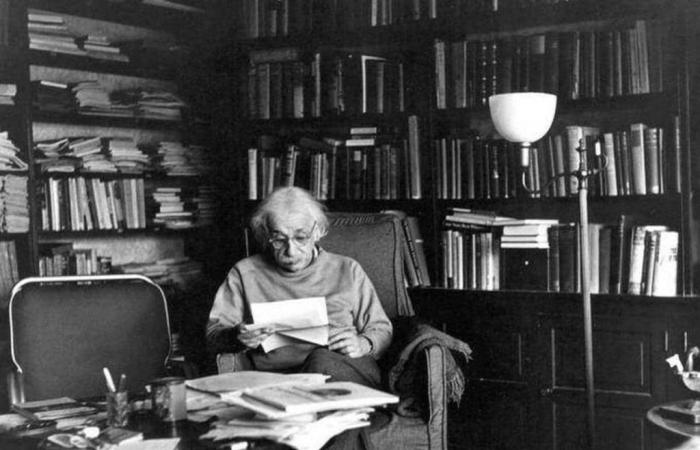
In 1939, a month before the start of World War II, Albert Einstein sent a letter to the American president. The famous physicist alerted Franklin D. Roosevelt to the potential dangers that Nazi Germany could represent if it came to master nuclear energy. Nearly a century later, the mail was auctioned for nearly four million euros.
A letter written by Albert Einstein, and addressed to former President of the United States, Franklin D. Roosevelt, will soon be auctioned by the heir of Microsoft co-founder Paul Allen, who died in 2018. Estimated value? “Between 4 and 6 million dollars (between 3.7 and 5.6 million euros) »indicate our British colleagues from the BBC. But what does this precious 85-year-old missive contain?
A little flashback. In the summer of 1939, war was looming in Europe. On the other side of the Atlantic, the Americans are worried. Scientists fear that Nazi Germany would build an atomic bomb. Desperate, they seek help from Albert Einstein and beg the physicist to alert their president: Franklin D. Roosevelt. On August 2, 1939, less than a month before the outbreak of World War II, the Nobel Prize winner in physics executed himself.
Read also: 100 years ago, Einstein became a legend
“Extremely powerful new bombs”
The Hungarian physicist who emigrated to the United States, Leo Szilard, with the help of his colleagues, Edward Teller and Eugene Wigner, wrote the draft of a letter addressed to the President of the United States. Albert Einstein signed it. The scientists write: “Over the last four months it has become possible – thanks to the work of Joliot in France as well as that of Fermi and Szilárd in America – to trigger a nuclear chain reaction with large quantities of uranium. […] This new phenomenon could lead to the construction of bombs and it is conceivable, although much less certain, that new types of extremely powerful bombs could be assembled. »
Read also: This atomic bomb has been sleeping off the coast of the United States for more than sixty years, here is its story
At the end of the two pages, the message is clear: the German government actively supports nuclear research. It is therefore necessary to retaliate. The physicists then urge the United States government to do the same. A message heard in October 1939, when the letter arrives in Franklin D. Roosevelt’s office.
Albert Einstein regrets signing the letter
The President of the United States is wasting no time. He created the Uranium Advisory Committee, the beginnings of the “Manhattan Project”. In 1945, this led to the very first use of nuclear weapons in the world. The atomic bombings of Hiroshima and Nagasaki in Japan by the United States caused more than 200,000 deaths.
“I made a big mistake in my life when I signed the letter to President Roosevelt recommending that he make these bombs.”, confessed, at the end of the war, Albert Einstein to the American chemist and physicist Linus Carl Pauling. From then on, and until the end of his life in 1955, the scientist campaigned for atomic disarmament. In an article in the American magazine Newsweek published in 1947 and cited by the Time in 2019, the physicist reportedly declared: “If I had known that the Germans would not succeed in producing an atomic bomb, I would never have lifted a finger. »





